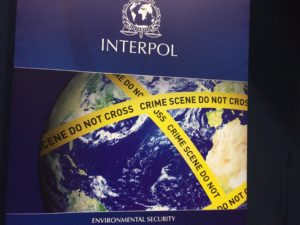

13.07.2017
ATIBT was invited on 12, 13 and 14 June, as well as various other organizations and NGOs, to attend a meeting in Interpol’s headquarters, in Lyon (France) to improve the fight against forest delinquency.
Interpol works will all relevant law enforcement agencies, including police, forest authorities, anti-corruption units, financial intelligence units and customs.
Project LEAF (Law Enforcement Assistance for Forests) is a specific Interpol initiative to combat organized criminal networks involved in forestry crimes, including illegal logging, illicit timber trafficking and related crimes.
Project LEAF intends to work with the Stakeholders Forum to establish partnerships and collaboration between civil society organisations (CSOs), indigenous people and local communities (IPLCs), Interpol and national law enforcement agencies.
The partnerships between civil society and law enforcement agencies will support efforts to source intelligence and exchange information on illegal logging and related criminal activity in the forestry sector.
The objective is to establish a global strategic advisory body (the Forestry Crime Working Group) to provide strategic advice to Interpol, in order to improve the effectiveness of law enforcement operations targeting organised criminal networks engaged in illegal logging and international trade in illegal timber and related crimes.
Membership of the Working Group shall be open to law enforcement officers, judicial officers, and/or decision-makers from Interpol member countries, who are appropriately qualified and experienced in the prevention, detection and suppression of forestry and related crime. Inter-governmental and non-governmental organizations and other interested parties, may be invited or may request to participate as observers at meetings or parts of meetings of the Working Group.
At this meeting, ATIBT expressed the wish to support any initiative aimed at reducing forest delinquency.

